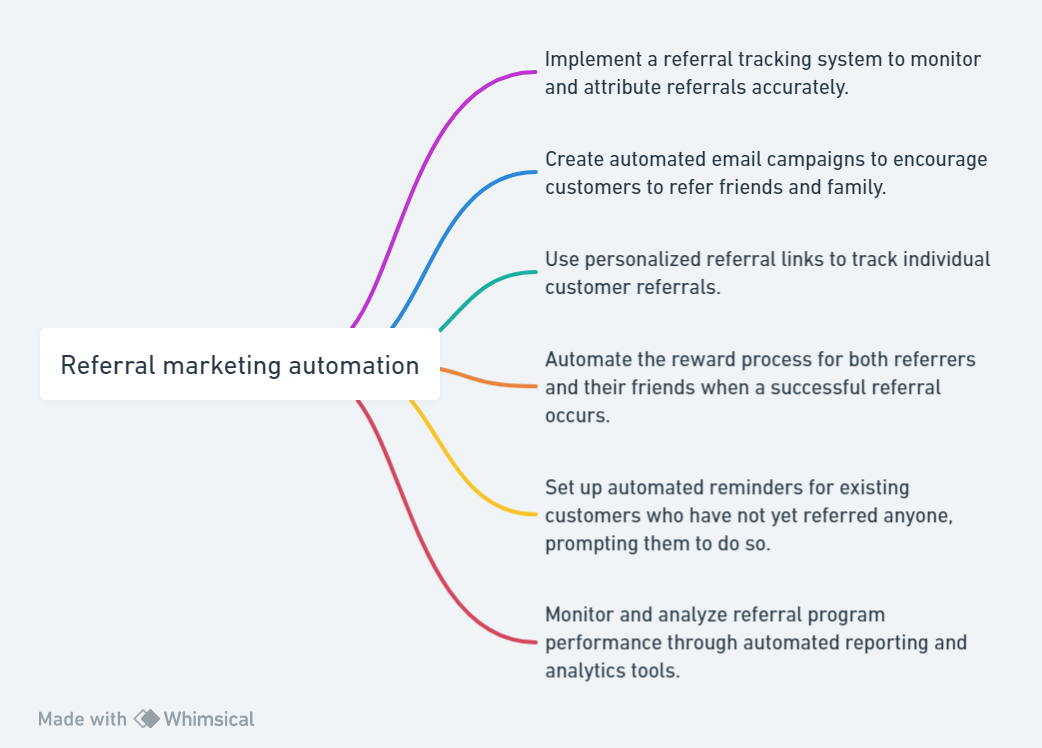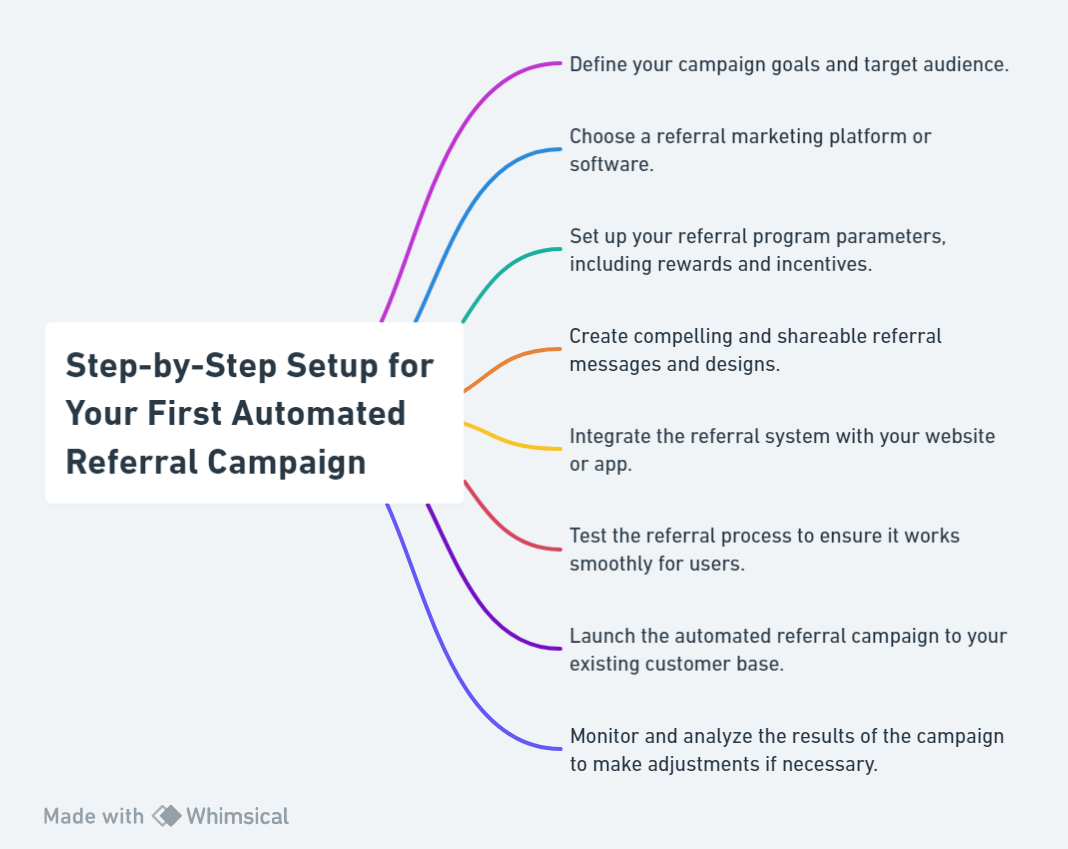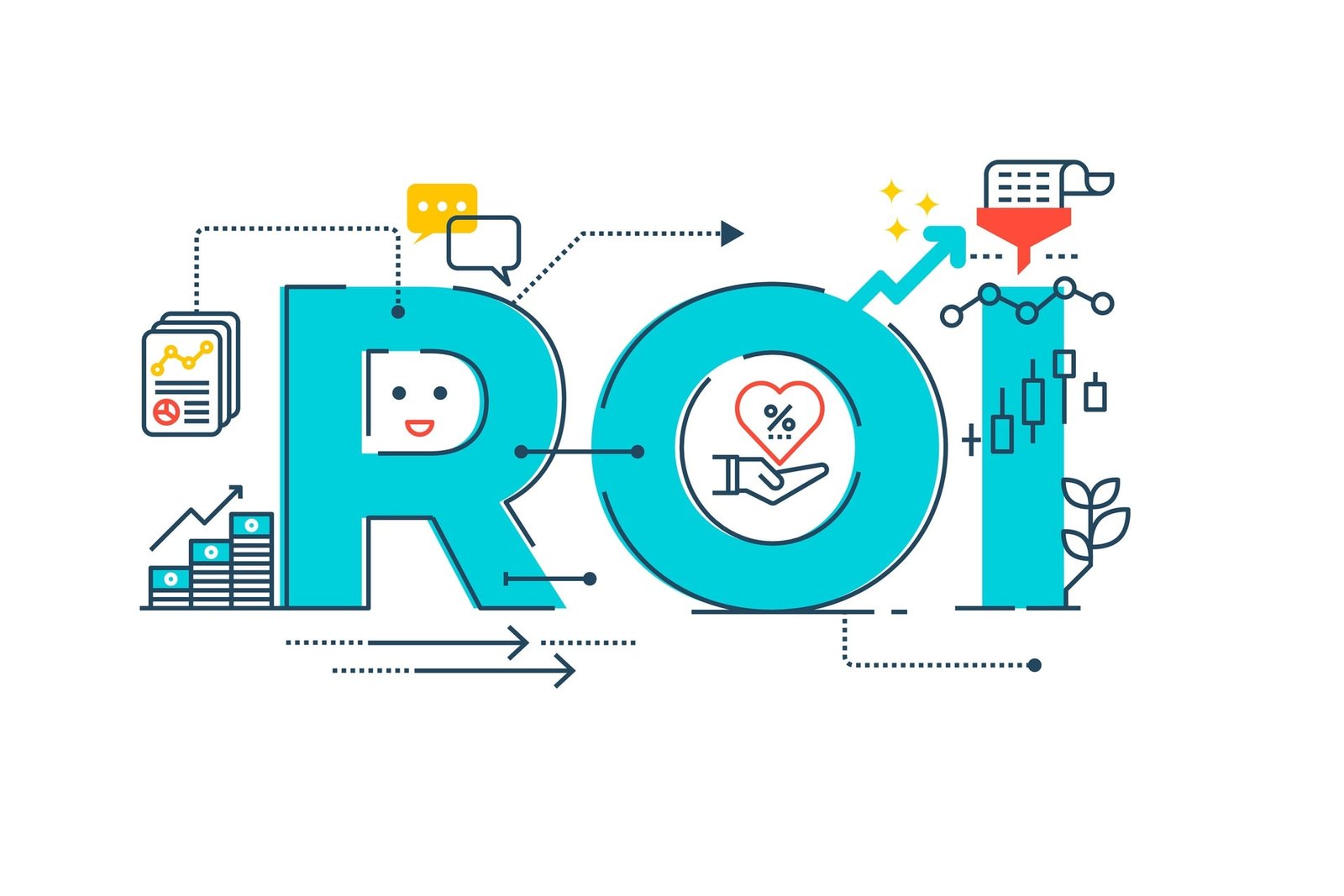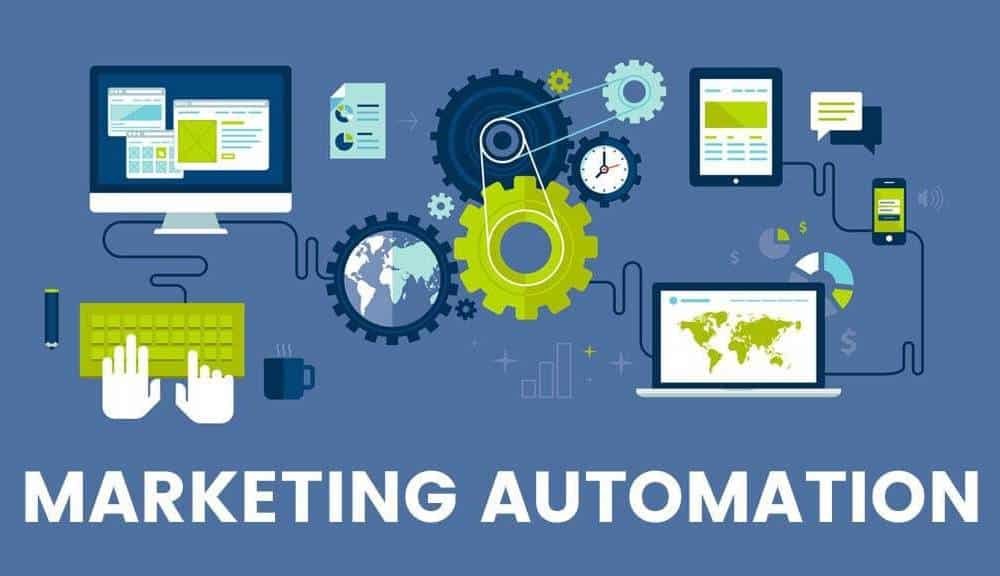In today’s competitive business landscape, attracting and retaining customers is crucial for success. Referral marketing, the process of generating new leads through existing customers, has proven to be an effective and cost-efficient way to achieve this. However, managing a referral program manually can be time-consuming and laborious. This is where referral marketing automation comes into play.
Referral marketing automation leverages technology to streamline and enhance the referral process, making it more efficient and effective. By automating tasks such as lead capture, tracking, and rewards distribution, businesses can maximize the potential of their referral programs.
Introduction to Referral Marketing Automation

Referral marketing automation is a powerful strategy that leverages software to streamline and enhance the process of encouraging customers to refer new clients to a business. By automating the referral process, companies can efficiently scale their marketing efforts, ensuring that both referrers and their friends receive rewards automatically, thus maintaining engagement and satisfaction. This introduction aims to shed light on the essence of referral marketing automation and its significance in today’s digital landscape.
1. The Essence of Referral Marketing Automation
At its core, referral marketing automation involves using technology to automate referral tracking, attribution, and reward processes. This approach not only saves time but also increases the accuracy and reliability of referral programs. By automating these processes, businesses can ensure a consistent and personalized experience for every participant, which is crucial for maintaining high engagement levels and driving successful referral outcomes.
2. Why Referral Marketing Automation Matters
In an era where personal recommendations carry more weight than traditional advertising, referral marketing automation stands out as a critical tool for growth. It allows businesses to tap into their existing customer base and harness the power of word-of-mouth at scale. Automated systems help in identifying potential referrers, tracking referrals through unique links or codes, and distributing rewards without manual intervention, making it an indispensable strategy for companies looking to expand their reach efficiently.
3. The Benefits of Implementing Referral Marketing Automation
Implementing referral marketing automation brings several benefits, including increased efficiency, enhanced tracking capabilities, and improved customer experiences. With automation, businesses can launch referral programs quickly and manage them effectively, focusing on optimizing and expanding their reach rather than getting bogged down in administrative tasks. Moreover, automated analytics and reporting provide valuable insights into program performance, enabling marketers to make data-driven decisions to optimize their referral strategies.
4. Getting Started with Referral Marketing Automation
Embarking on a referral marketing automation journey requires careful planning and the right tools. Choosing a referral marketing platform that aligns with your business needs and integrates seamlessly with your existing systems is the first step. From there, defining clear goals, creating compelling referral offers, and continuously monitoring and tweaking your program based on performance data will set the foundation for a successful referral marketing automation strategy.
Boost Your Sales: Referral Marketing E-commerce Strategies
Key Benefits of Automating Your Referral Program

Automating your referral program through referral marketing automation offers a multitude of advantages that can significantly impact your business’s growth and efficiency. By integrating referral marketing automation into your strategy, you unlock a powerful channel for customer acquisition and engagement. This section delves into the major benefits of taking the leap towards automating your referral initiatives.
1. Enhanced Efficiency and Scalability
One of the most compelling benefits of referral marketing automation is the dramatic increase in efficiency. Manual processes are time-consuming and prone to errors, but automation streamlines every step of the referral journey—from the initial invitation to track conversions and issuing rewards. This efficiency not only saves valuable time but also ensures your program can easily scale alongside your business without a corresponding increase in workload.
2. Consistent and Personalized Communication
Referral marketing automation enables consistent and personalized communication with your participants. Automated systems can send tailored messages based on specific triggers, such as a referral sign-up or successful conversion. This level of personalization enhances the experience for both the referrer and the referred, fostering a sense of value and appreciation that can boost program participation and effectiveness.
3. Improved Tracking and Analytics
With referral marketing automation, tracking the performance of your referral program becomes a straightforward task. Automated systems provide detailed analytics and reporting features, allowing you to monitor key metrics like participation rates, conversion rates, and overall ROI. These insights are invaluable for understanding what’s working and where there’s room for improvement, enabling data-driven decisions to optimize your program.
4. Increased Conversion Rates
Automated referral programs are designed to make it as easy as possible for customers to refer their friends and for those friends to make a purchase. By removing friction points and providing clear, immediate incentives, referral marketing automation can significantly increase conversion rates. The ease of sharing, coupled with timely rewards, encourages more customers to participate, leading to more referrals and ultimately, more conversions.
5. Cost-Effectiveness
Referral marketing automation is a cost-effective marketing strategy. By automating the referral process, businesses reduce the need for extensive manual oversight and can allocate their resources more efficiently. The ROI from a well-executed automated referral program often exceeds that of other marketing channels, making it an attractive option for businesses looking to maximize their marketing budget.
6. Strengthened Customer Relationships
Finally, automating your referral program helps strengthen relationships with your existing customer base. It demonstrates that you value their input and trust, rewarding them for their loyalty and advocacy. This reinforcement of positive feelings can increase customer retention rates and lifetime value, contributing to long-term business success.
Innovative Trends in Healthcare Referral Marketing
Step-by-Step Setup for Your First Automated Referral Campaign

Referral marketing automation streamlines the referral process, making it easier to acquire new customers and reward existing ones. Follow these steps to set up your first campaign:
1. Define Your Goals:
Determine the specific objectives of your referral marketing automation campaign, such as increasing customer acquisition or boosting brand awareness.
2. Create a Referral Program:
Establish the rules and incentives for your referral program, including the rewards for referring customers and the criteria for eligibility.
3. Integrate with Your CRM:
Connect your referral marketing automation platform with your CRM to track customer referrals and manage rewards.
4. Set Up Automated Emails:
Create a series of automated emails that will be sent to customers after they make a purchase, encouraging them to refer their friends.
5. Track and Measure Results:
Monitor the performance of your referral marketing automation campaign to track referral rates, conversion rates, and ROI.
6. Optimize and Iterate:
Regularly review your campaign results and make adjustments to improve its effectiveness. This could involve refining your referral incentives, testing different email messaging, or adjusting the timing of your automated emails.
The Future of Internet Referral Marketing in 2024
Best Practices for Measuring Success and ROI

Determining the success and return on investment (ROI) of your referral marketing automation efforts is crucial for understanding the effectiveness of your strategy and making informed decisions for future improvements. This section outlines the best practices for accurately measuring the success and ROI of your automated referral program, ensuring you can capitalize on its benefits and optimize performance over time.
1. Establish Clear Metrics for Success
Before diving into analytics, it’s essential to define what success looks like for your referral program. Common metrics include the number of new referrals, conversion rates (how many referrals become paying customers), average order value of referred customers, and the overall growth in revenue attributed to the referral program. Setting these benchmarks early on will guide your measurement efforts and help quantify your program’s impact.
2. Utilize Integrated Tracking Tools
To effectively measure the performance of your referral marketing automation, utilize tracking tools that integrate seamlessly with your marketing stack. These tools should accurately track referrals from the point of invitation to conversion, including any intermediary steps. Look for solutions that offer detailed analytics dashboards, providing a clear view of your program’s performance across various metrics.
3. Calculate the Program’s ROI
Calculating the ROI of your referral program involves comparing the revenue generated from referred customers against the costs of running the program, including software expenses, rewards given out, and any associated marketing costs. This calculation provides a tangible measure of the program’s profitability and efficiency, helping justify further investment or adjustments in strategy.
ROI=Revenue from Referral Program−Cost of Referral ProgramCost of Referral Program×100%
4. Monitor Customer Lifetime Value (CLTV)
Understanding the Customer Lifetime Value (CLTV) of referred customers versus other acquisition channels can offer deeper insights into the long-term value of your referral marketing automation. If referred customers have a higher CLTV, it indicates not only immediate revenue gains but also long-term profitability from maintaining the program.
5. Assess Program Engagement and Participation Rates
Measuring the engagement and participation rates within your referral program can provide insights into its overall health and appeal. High participation rates suggest that your incentives are compelling and that your customer base is actively engaged with the program. Monitoring these rates over time can help identify trends and opportunities for enhancing program attractiveness.
6. Leverage A/B Testing for Continuous Improvement
To maximize the success and ROI of your referral marketing automation, implement A/B testing for different elements of your program, such as the referral message, incentives, and landing page design. By comparing the performance of different variations, you can identify what works best for your audience and refine your approach accordingly.
7. Solicit Feedback from Participants
Gathering feedback directly from program participants can offer invaluable insights into what’s working and what can be improved. This feedback can help you understand the user experience from both the referrer’s and the referee’s perspectives, providing actionable data to enhance program effectiveness.
Maximizing ROI with B2B Referral Marketing Strategies
Conclusion Referral marketing automation
A referral marketing strategy leverages satisfied customers to promote products or services to their network, generating word-of-mouth recommendations. It entails incentivizing existing customers to refer others and expanding the customer base organically. Referral marketing automation streamlines this process by utilizing software to track, manage, and reward referrals efficiently. Through automated systems, businesses can monitor referral activity, provide incentives, and optimize campaigns for maximum effectiveness. This approach not only harnesses the power of customer advocacy but also enhances brand credibility and fosters loyalty. Referral marketing automation thus becomes a pivotal tool in driving growth and establishing a strong customer acquisition channel.

